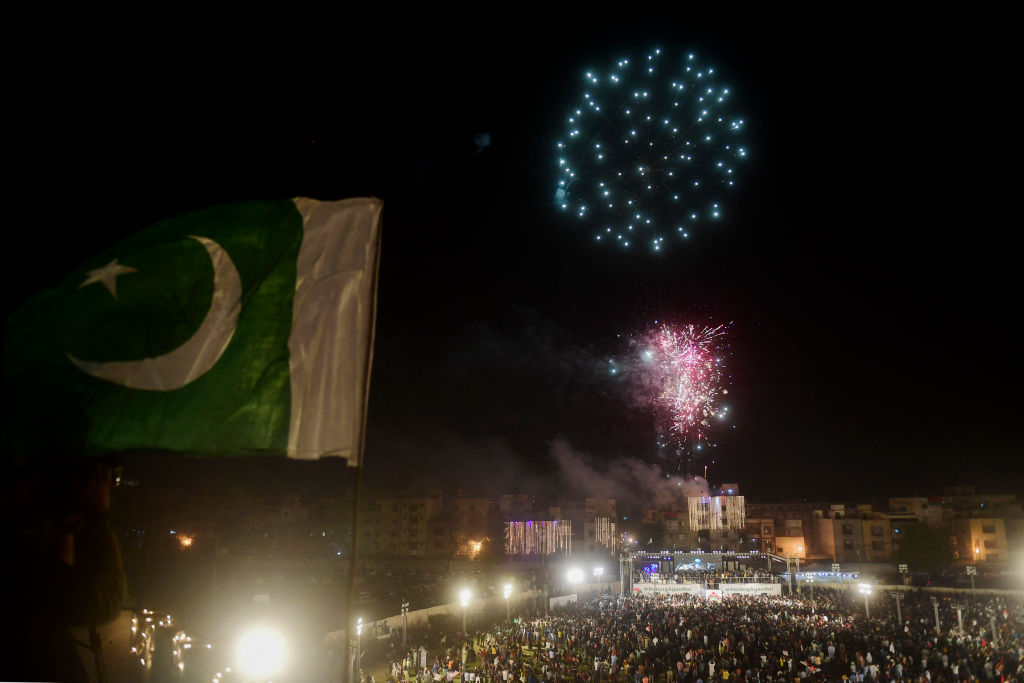- Saturday, July 27, 2024
It might go down to formation of a coalition government or the military’s intervention to bail the country out of its current turmoil.

By: Shubham Ghosh
NO political party could secure a majority in the national election of Pakistan held last week and observers were closely watching how things unfolded in the South Asian nation which has been plagued by several challenges besides political.
The election held on February 8 was marred by militant violence, political turmoil and allegations of malpractice.
As uncertainty loomed over who would form the next government, former prime ministers Nawaz Sharif and Imran Khan, who are also bitter rivals, claimed victory, adding more fuel to an instability building up in a country which is facing an unprecedented economic crisis.
Pakistan has to find a government in place at the earliest to address several challenges, including negotiating a fresh International Monetary Fund programme to keep the economy afloat.
Read: Decoding Pakistan’s challenging national election of February 8
A prime ministerial candidate has to prove a simple majority of 169 seats in the National Assembly, the lower house of Pakistan’s bicameral legislature, when it is called soon. The assembly consists of 336 seats of which 266 are decided through direct ballot. The remaining 70 are reserved ones — 60 for women and 10 for non-Muslims — that are allotted on the basis of the strength of each party in the house to determine the parties’ final position in the National Assembly.
There could be four possible scenarios for post-poll Pakistan.
Read: Pakistan army chief tells politicians to show ‘maturity’ after fractured poll verdict
If Sharif’s Pakistan Muslim League – Nawaz (PML-N), which won 75 seats in this election, makes a deal with the Pakistan People’s Party (PPP) led by former foreign minister Bilawal Bhutto Zardari, which won 53 seats, they can form a majority government. They can be joined by other smaller parties and the coalition government can be led by either Sharif or his brother Shehbaz Sharif, another former prime minister.
The arrangement would be more like the Pakistan Democratic Movement coalition which was in power after Imran Khan was ousted by a no-confidence motion in April 2022. Bhutto Zardari was the finance minister in that government even though his PPP was divided over the move.
Independent candidates backed by Khan, who was disqualified from the election and put behind bars under several cases, can join hands with a smaller party in the parliament to set up a single bloc in order to secure the reserved seats. That might see them getting closer to a majority and even allow them to project a prime ministerial face.
These independents, backed by Khan’s Pakistan Tehreek-e-Insaf which has also been barred from contesting the election, can make an arrangement with other parties to back a consensus candidate and mobilise support to get Khan released. However, they will have to work hard to find allies that are aligned with the former prime minister.
The PPP might not have emerged among the top two parties but that doesn’t reduce its significance. In fact, the party is the king-maker as no party can form the government without it. Either of them can try to win the PPP into confidence and agree to work with Bhutto Zardari, 35, as the prime minister.
In case none of the equations work out and uncertainty continues, the Pakistani army, the country’s most powerful force, can step in to take over and restore order. However, it has not overtly ruled Pakistan’s politics since the last coup in 1999 when Nawaz Sharif’s government was overthrown by the late dictator, Pervez Musharraf. The armed forces have called on the parties to show “maturity and unity”.
Harsh V Pant, professor of International Relations, King’s India Institute, King’s College London, however, believes that the result of the latest election gave a blow to the Pakistani military and showed that the common people of the country are “tired of the shenanigans of the military and mainstream political parties”.
“Despite the abysmal governance record of Imran Khan, they are showing support for him and his defiance of the establishment,” he told India weekly.
(With Reuters inputs)